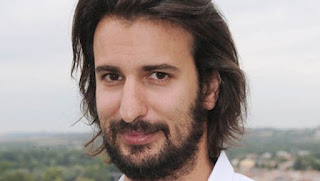In his recent French film The Past (2013), Academy award winning Iranian director Asghar
Faradhi, carefully constructs a world of conflicted characters and fragmented relationships.
Reminiscent of the Oscar award winning A
Separation, this movie delves into the lives of a soon-to-be-divorced
couple and explores the ripples created by their estrangement.
In the film, a French woman, Marie (Berenice
Bejo) and an Iranian man, Ahmed (Ali Mosaffa), have been separated for four
years. The impetus to finalise their
divorce occurs when Marie starts a new relationship with an Arab man, Samir (Tahar
Rahim). While the relationship between Marie and Ahmad shows the flickering
sparks of being an old married couple who have grown apart, the relatively
nascent romance between Marie and Samir is tenuous and fraught with
uncertainty.
The strained dynamic between these three
individuals is compounded by the fact that Samir is married and his wife is
comatose. Furthermore, Marie’s daughters from a previous marriage (preceding
her marriage to Ahmed) and Samir’s son are caught in the fray, struggling to
grapple with the choices of their parents.
As the characters in the film negotiate their present realities, they
are paralysed by their own pasts.
Faradhi peels off the layers of every
character to expose the fears and truths that lie at their core. The characters
in the film are inextricably bound to each other and their seemingly simple
acts prove to have catastrophic consequences.
The
director skilfully offers the audience a vantage point from which to explore
these individuals and their revelations.
The French-Argentine actress Berenice
Bejo (who gained renown for her role in The
Artist) displays her versatility as the distraught and melancholic Marie. Ali
Mosaffa’s character Ahmed is eager for resolution and evokes sympathy, becoming
the perfect foil to Bejo. Elyes Aguis, who plays Samir’s young son Faoud, also
delivers a heart-wrenching and noteworthy performance.
Director: Asghar Farhadi
Farhadi is a masterful storyteller with a
flair for showcasing the nuances of human sentiments. What
differentiates Faradhi’s film from the works of his directorial predecessors of
the Iranian New Wave like Majidi or Kirostami, is that he extracts his
protagonist (Ahmed) from the Iranian homeland. The movie unfolds in a quaintly
French setting but maintains Iran as a motif. Farhadi creates a world where he
explores the ideas of love, loss, remorse, tragedy and hope. His camera
work, like that of Jon-Luc Godard, is unobtrusive. His portrayal of characters,
like the films of Jon Renoir, is deeply humanist.
Subtle symbolism punctuates the movie.
An ongoing renovation takes place in Marie’s home throughout the film, symbolic
of the repairs that are due in her own personal life. In another scene, glass
chandeliers jolt precariously in the back seat as Marie and Samir drive their
car, representing the fragility of their relationship. Lastly, as Samir visits
his wife in the hospital, her life hangs in the balance, as does the future of
all the relationships between the various characters in the film.
Film clip
The Past fortifies Farhadi’s position as a ground-breaking film-maker
with a definitive perspective on the human condition. It is Iran’s entry to the
86th Academy Awards for Best Foreign Language Film.
Whether or not it earns Farhadi his second Oscar award, it remains a testament
to his directorial prowess.
- Parinitha Shinde




























